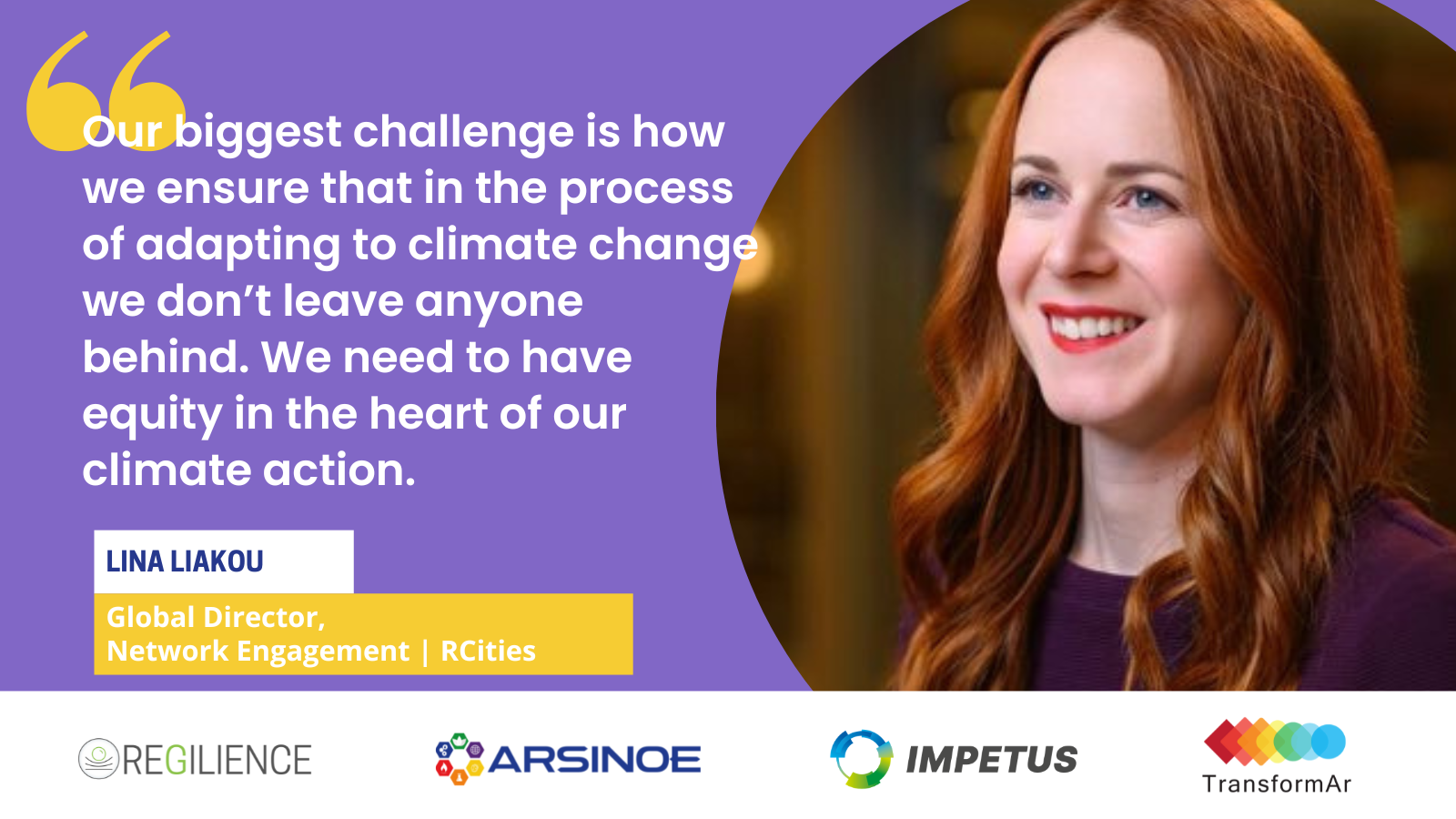
March is the month we celebrate women!
Together with our sister projects, ARSINOE, IMPETUS and TransformAr, we decided to interview impactful women from our programs, who are working actively on resilience and adaptation tools, solutions and initiatives to mitigate the unavoidable impacts of climate change.
As part of REGILIENCE, we spoke to Ms Lina Liakou, Global Director of Network Engagement and Head for Europe and the Middle East for REGILIENCE partner Resilient Cities Network.
Q.: Ms Liakou, you are a Global Director of Network Engagement and Head for Europe and the Middle East for REGILIENCE partner Resilient Cities Network, and you are also the former Deputy Mayor for Urban Resilience and Development planning for the City of Thessaloniki. How does your expertise as Deputy Mayor inform and translate into your work as part of the REGILIENCE project?
Ms Lina Liakou: When you work within a local government, you understand better the day-to-day challenges and internal barriers. Thanks to this experience, I have a better sense of what enables innovation within to trigger systemic change. And this is now embedded in me and translates into my work and contribution to REGILIENCE—I look through the lens of cities to identify and maximise the value this can bring to them.
Q.: What made you want to get involved in city governance, sustainability, and resilience?
Ms Lina Liakou: When I realised this is where true change takes place, I knew I had to get involved in local governance. Every aspect of our lives is affected by how a city is governed. And this is true for every life in a city—that’s when resilience becomes essential for change. Resilience brings perspective and understanding of how to enhance the lives of people and the performance of the systems—it’s like a glue that puts together all the values and aspects of what makes a city great.
Q.: How have your studies contributed to the research on climate change and how does your field of expertise complement other disciplines in the projects you are now working in?
Ms Lina Liakou: As an architect, I understand the city as an interconnected system which is key if you want to measure and build resilience to climate change. This way of seeing cities and the world also applies to the project. It helps us understand our expertise’s interconnectedness and how we can integrate and intervene most effectively.
Q.: What was the biggest challenge you had to overcome in this career path and what has been the most important lesson you’ve learned?
Ms Lina Liakou: Bringing people together and mobilising them for a common goal. Even when we want to achieve the same, interests and perspectives always differ. That is why storytelling and creating narratives that speak to the interests of the various stakeholders is so important—they allow us to convey the importance and urgency for resilience building.
Q.: As an expert in transforming cities and organizations, what would you say is Europe’s biggest challenge now regarding our ability to adapt to climate change?
Ms Lina Liakou: Our biggest challenge is how we ensure that in the process of adapting to climate change we don’t leave anyone behind. We need to have equity in the heart of our climate action.
Q.: What makes you most hopeful for the future?
Ms Lina Liakou: The younger generations. For them climate action is not “good to have” but our duty towards each other.
More Women in STEM interviews:
See the IMPETUS interview with Hannah Arpke, Project Coordinator at the EUrecat Technology Centre of Catalonia. And read the ARSINOE interview with Teresa Pérez Ciria, a post-doc researcher at the Ludwig Maximilian University of Munich in Germany.

